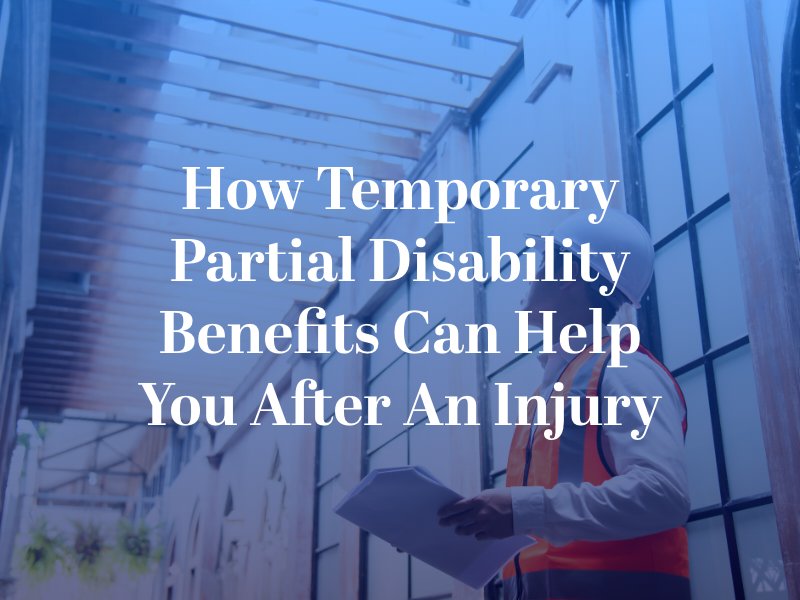Illinois Temporary Partial Disability (TPD) Benefits
If a workplace accident has left you injured, you may want to explore utilizing temporary partial disability (TPD) benefits to help cover costs while you cannot work. This process can feel overwhelming to navigate, which may cause you to miss out on helpful benefits. At Taxman, Pollock, and Bekkerman, our Chicago workers’ compensation attorney can help you access the benefits you are entitled to after an injury.
If you wish to talk to an attorney at our firm, please fill out our online contact form or call (312) 586-1700.
Understanding Temporary Partial Disability
Temporary partial disability is meant to provide you with a portion of your missed wages for a short period of time while you transition back to work after an injury. The Illinois Workers’ Compensation Handbook explains that this is meant for individuals working light duty, whether part-time or full-time. If you have made a workers’ compensation claim for a job-related injury, you may be eligible.
In many circumstances, you may find yourself able to perform your job duties but tire more quickly or need more time off to attend physical therapy or doctor appointments. These are both situations that may entitle you to TPD.
Calculating Temporary Partial Disability Benefits
TPD benefits are calculated based on the difference between the wage you should expect to earn and the wage you actually earn due to your injury. Currently, this benefit pays around 66% of that difference. The minimum and maximum allowed payment amounts may vary based on the circumstances and type of injury outlined by the Illinois Workers’ Compensation Commission.

How Long Does Temporary Partial Disability Last
Temporary partial disability is not unlimited. Most benefits discussed in the Illinois Workers’ Compensation Handbook are subject to time limitations before you need to pursue other forms of disability or engage in vocational rehab programs. However, Temporary Partial Disability generally lasts until you can transition to your normal job duties or your doctor determines you have reached maximum medical improvement.
Maximum Medical Improvement
Maximum medical improvement is the point at which further medical intervention is unlikely to further improve your condition. Your provider will determine this based on a comprehensive evaluation of the injuries you sustained, your medical history, the treatment you received, and your current capacity.
Employee Responsibilities
Though employers are required to carry workers’ compensation policies, employees must follow through with certain obligations we well. As an employee, the Illinois Workers’ Compensation Handbook explains that you have the following responsibilities:
- Seek prompt medical attention following injury
- Cooperate with doctors and follow treatment plans
- Report your injury to the employer per your company’s policy and provide them with the contact information for the physician you have chosen
Each company has its own policy for reporting injuries. The Workers’ Compensation Office typically requires injured parties to report the injury within 45 days. Failure to report the injury may cause a delay or reduction of benefits. Further, if you do not comply with your treatment plan, or you are found to have engaged in other injurious or unsanitary behaviors that may worsen your injuries, you may lose access to some of these benefits.
